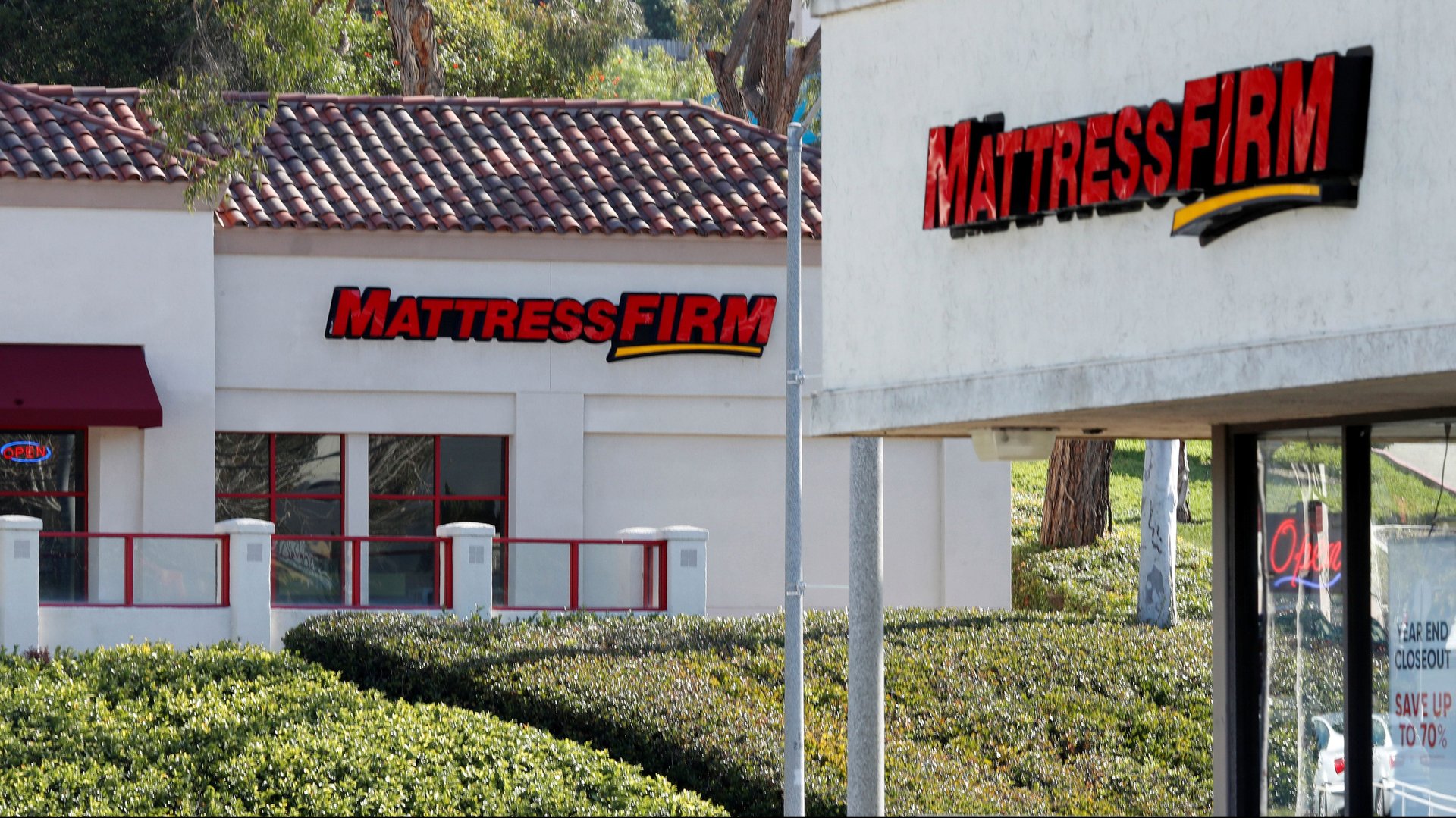Mattress Firm never understood how much Americans hate mattress shopping
Mattress Firm, the largest seller of mattresses in the US and most pun-committed company, filed for bankruptcy protection yesterday (Oct. 5). It had been reported in August to be exploring bankruptcy proceedings and shuttering its money-losing stores.


Mattress Firm, the largest seller of mattresses in the US and most pun-committed company, filed for bankruptcy protection yesterday (Oct. 5). It had been reported in August to be exploring bankruptcy proceedings and shuttering its money-losing stores.
Houston-based Mattress Firm was founded in 1986 and had sales of more than $3 billion. But the company anticipated losing $150 million in the 2018 fiscal year, according to court documents reported by the AP. Mattress Firm has more than $1 billion in liabilities and owes nearly $65 million to its largest creditor, Simmons Manufacturing Co.
Mattress Firm in court filings pointed to rapid expansion and the “cannibalization” of sales from stores that were clustered too closely. “[M]any Mattress Firm stores are in direct competition with other Mattress Firm stores, resulting in disappointing sales,” the company said. It plans close 700 of its more than 3,200 shops to reboot the business.
But the company also failed to understand just how much Americans hate mattress shopping. Mattress stores are known as sleazy dealers that trick customers into paying more, with opaque prices and confusing branding. One common trick is to inflate the “standard” retail price of an item, then offer a large “discount” that still leaves the mattress price far above its actual cost. Another trick is for manufacturers to sell the same mattress under different names in different stores, making it difficult for shoppers to price compare.
Mattress Firm grew fast in part by buying rival mattress seller and fellow pun-lover Sleepy’s for $780 million in late 2015, adding 1,050 stores to its portfolio. But it doubled down on physical retail as much of mattress sales was moving online, and many branches withered in strip malls and suburban shopping plazas.
The company was blindsided by startups that recognized how terrible mattress-shopping could be and touted a better experience. Casper, founded in 2014, raised $240 million to sell mattresses directly to consumers. It promised easy online ordering and hassle-free delivery and returns of relatively affordable mattresses.
There are now a host of such online mattress sellers, such as Leesa, Tuft & Needle, and Sapira. Amazon has also entered the field, offering its own bed-in-a-box mattresses.
Like traditional sellers, some of the newcomers pose problems for shoppers. The fast-talking salesman has been replaced with fraudulent online reviews and search-engine-optimized ads that send unsuspecting internet shoppers toward inferior products.
One thing is sure: None of the online options can compete with Mattress Firm when it comes to being punny.